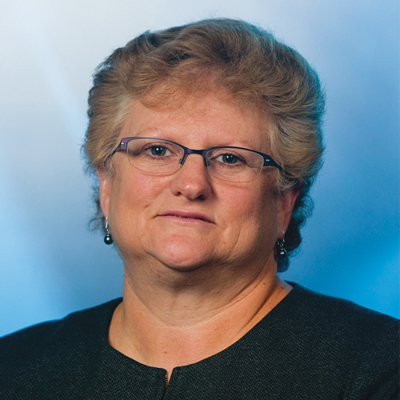Insurtechs
Mixed Results
Health insurtechs posted varied outcomes in the first half amid rising premiums and fundraising.
- David Pilla
- November 2020
-






The insurtech companies may have less of a differentiating factor in this new [pandemic] operating environment.
Sally Rosen
AM Best
Three health insurtechs posted net income in the first six months of 2020 amid rapid premium growth and recent fundraising, while one posted a net loss.
Looking at the health insurance market overall, more carriers will be participating in the individual market for 2021, “given the recent announcements of market expansion by several publicly traded companies,” said Sally Rosen, senior director, AM Best.
Health insurtechs raised new funds in 2020, including the most recent effort by Bright Health, which raised $500 million in late September.
There is a decline in group enrollment due to the economy and growth in Medicaid, said Rosen. “I would note that health insurtechs are not very active in Medicaid,” she said.
“All health insurance companies have had to adapt to a virtual environment and many have increased the use of digital/virtual communication with members,” said Rosen. “This change is not expected to go away. While health insurance companies have always competed directly with the insurtech health insurers, the insurtech companies may have less of a differentiating factor in this new operating environment.”
“Overall, the health insurance sector reported strong earnings in the first half of 2020,” said Rosen.
The following six-month financials are from BestLink information:

Oscar entered the pandemic well-positioned to move quickly because of our virtual-first approach to health care.
Meghan V. Joyce
Oscar Health
Oscar
Oscar Insurance Group reported higher net income of $53.5 million in the first six months of 2020, up from net income of $12.8 million a year ago. Net loss for the full year of 2019 widened to $71.0 million from a net loss of $39.3 million in 2018.
Net premiums earned (NPE) rose to $276.5 million from $245.6 million. For the full-year 2019, net premiums earned fell to $446.9 million from $647.6 million in 2018.
Oscar Insurance Group has 11 group members. Oscar's biggest market in 2019 was New York, with $263.8 million in direct premiums written; followed by Texas, with $230.8 million; Florida, with $143.4 million; Ohio, with $113.3 million; and Tennessee, with $70.6 million.
Aggregate 2019 DPW for Oscar's insurers is $899.5 million.
In June, Oscar raised $225 million, which it plans to use to increase efficiencies while continuing to develop its model, according to Co-founder and Chief Executive Officer Mario Schlosser.
Oscar expanded this year and is available in 15 states, with more than 420,000 members across individual, Medicare Advantage and small group products, it said.
Oscar's results were “above our expectations,” Meghan V. Joyce, chief operating officer, Oscar Health, said in an email, “due in part to lower utilization during the COVID-19 pandemic.”
Access to and use of telemedicine was “without a doubt, the most relevant development in health tech in 2020,” said Joyce. “Oscar entered the pandemic well-positioned to move quickly because of our virtual-first approach to health care.”
That means fewer emergency room visits for things that are not emergent and can be handled in a virtual setting, she said. “Looking ahead, we anticipate a blended approach, with as much care as possible delivered virtually because members want convenience and payers want to drive value in the system.”

We’ve seen a significant reduction in medical spend due to the lack of elective procedures taking place.
Andrew Toy
Clover Insurance Group
Clover
Clover Insurance Group reported six-month net income of $34.7 million compared with a net loss of $16.3 million a year earlier. For 2019, the company's net loss widened to $57.9 million from a loss of $40.9 million in 2018.
NPE in the first half rose to $334.0 million from $233.1 million year ago. For the full year in 2019, NPE rose to $456.9 million from $290.1 million in 2018.
“We continue to execute on our operational plans and are seeing the impact of those in our financial results for the first half of the year,” said Andrew Toy, president and chief technology officer. “Similar to what other insurers are experiencing, we've seen a significant reduction in medical spend due to the lack of elective procedures taking place.”
“Our ability to quickly ramp up telehealth capabilities and integrate them into our Clover Assistant platform has allowed us to stay almost at parity with the number of Clover Assistant visits taking place pre-pandemic,” said Toy.
Toy noted while all of its Clover Assistant doctors can do video visits, “we've found that many of our members don't have the technology at home to do video—either lacking a smartphone or Wi-Fi.” He said Clover is working on a solution to this access issue, “but it's not something we're able to comment on yet.”
“It looks like COVID is going to be a significant factor for at least another year,” said Toy. He said companies including insurtechs, vendors and providers that are nimble and able to adjust quickly to the new health care environment will thrive.
Clover has two group members: Clover HMO of New Jersey and Clover Insurance Co. The bulk of Clover's business is in New Jersey, where it wrote $449.5 million of its $457.9 million in total DPW in 2019.
In July, Clover said it plans to triple its geographic reach with an expansion that would increase its coverage to 108 counties in eight states pending CMS approval.
At the time Clover said it offers Medicare Advantage plans in 34 counties across seven states with 57,000 members. The planned expansion will bring coverage to 74 additional counties with 69 of the additional counties in Clover's existing markets of Arizona, Georgia, New Jersey, Pennsylvania, South Carolina, Tennessee and Texas, as well as five counties in Mississippi—a new market for the company.
In January Clover said it saw membership growth of 37% in 2019. The company said it began in January 2019 with 39,400 members and in January 2020 it had 54,400 members.
The company reported growth throughout the entire year “with a surge of new sign-ups during the recently ended Medicare annual election period.”
In early October Clover Health Investments Corp. agreed to become a public company through a $1.2 billion merger with Social Capital Hedosophia Holdings Corp. III.
Bright Health
Bright Health Insurance Group had six-month net income of $6.5 million, down from net income of $11.7 million a year ago. For the full year in 2019, the company reported a net loss of $42.6 million, compared with a $19.5 million loss in 2018.
The group's NPE rose to $328.4 million in 2020's first half from $118.2 million a year ago. For 2019 Bright Health reported NPE of $209.2 million, up from $117.0 million in 2018.
Minneapolis-based Bright Health's biggest market was Colorado, where the company reported DPW of $125.5 million in 2019. Other markets include Arizona, with DPW of $68.0 million; Tennessee, with DPW of $64.1 million; and Alabama, with DPW of $12.7 million.
Bright Health's total 2019 DPW was $278.5 million.
With its recently announced $500 million funding round, Bright Health said it raised more than $1.5 billion in equity financing since early 2016.
Bright Health said it operates in 43 markets and 13 states, with more than $1.2 billion in annual net revenue.
In June, Bright Health Plan announced details of a 2021 expansion, including Medicare Advantage, individual and family plans in six new markets in Florida, North Carolina and Illinois. For the first time, they will also offer employer-sponsored plans in certain markets, subject to final regulatory approval, the company said at the time.
Devoted Health
Devoted Health Group had a widened six-month net loss of $9.2 million from a loss of $4.9 million in the same period a year ago. For the full year 2019, the net loss widened to $27.4 million from a loss of $1.0 million.
NPE for the six months rose to $108.4 million from $18.6 million a year earlier. For 2019, NPE was $45.2 million compared with no premiums in 2018.
All of Devoted's $45.6 million in 2019 DPW were in Florida.
Devoted Health Group, based in Waltham, Mass., was founded in 2017 and began enrolling seniors in Florida in 2018. The company is made up of four group members: Devoted Health Insurance Co., Devoted Health Plan of Florida, Devoted Health Plan of Ohio and Devoted Health Plan of Texas.